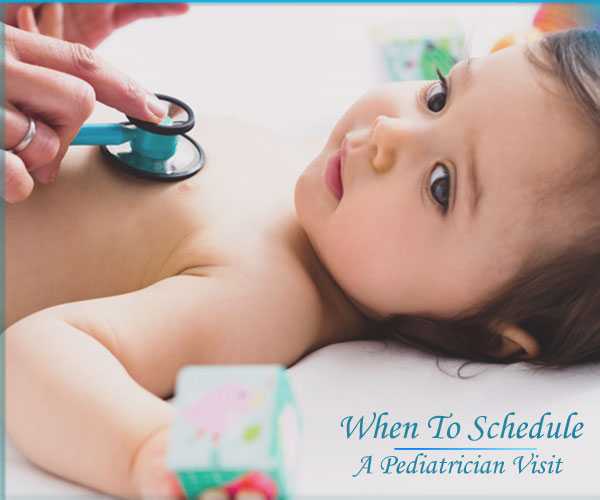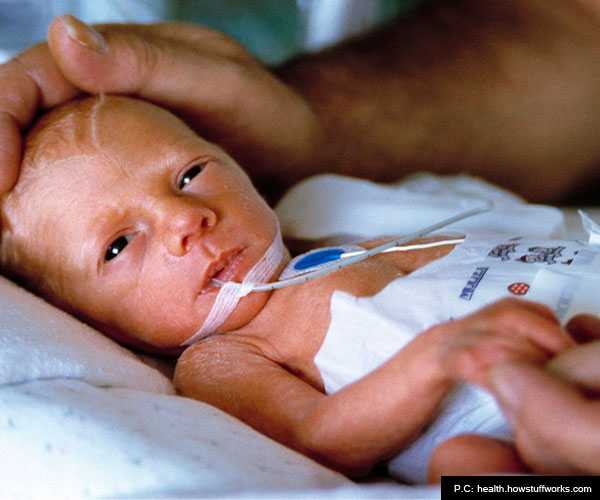When an infant is delivered before the 37th week of gestation, s/he is deprived of the nourishing intrauterine environment that facilitates the all round development of the fetus. It is recorded that neurological & respiratory development are still under progress inside the womb until the 37th week. Hence, each delivery that is done even one week ahead of the schedule leaves the neonate subjected to crucial health issues.
The severity of the physical & mental health related problems depends on the level of prematurity of each neonate. Every preterm neonate’s morbidity status is inversely proportional to his/her gestational age. A relatively low gestational age indicates increased chances of morbidity, and vice versa.
Stunted growth of the Cerebral Cortex
A survey conducted in the King’s College of London revealed that preterm neonates are highly likely to suffer from neurological impairments due to incomplete cortical development inside the womb & their inability to continue the development of brain cells in an extra uterine environment, leading to permanent mental immaturity whose severity varies from child to child in the long term.
The ingress of water molecules by the cerebral cortex of premature & term neonates were mapped to record the expansion of the neural network in both density & complexity. It was discovered that development of social & emotional receptors along with the ability of decision making don’t take place until the onset of the late gestation period covering the ending couple of weeks of the third trimester. Hence, premature birth results in direct absence of proper cortical development & makes the neonate highly prone to mental retardation.
The same batch of premature & term children were analyzed after a period of 2 years. The conduction of examination bought the stunted brain growth of preterm children under the limelight when they scored relatively lower than term infants in the cognitive tests.
Increased risk of ADHD
More than 10 million cases of ADHD are registered in India each year. Preterm children start exhibiting symptoms of Attention Deficit Hyperactivity Disorder from approximately 3 years of age when children generally start to become more expressive. This medical condition has no definite cure & persists for a lifetime. Children with ADHD have restricted attention span & severe concentration inabilities. They tend to be hyperactive & do not exhibit positive performances in academics or even simple cognitive & motor functions. These children suffer from low self esteem that carry on towards adulthood and harm their general quality of life.
Extensive speech therapies, yoga & routine concentration building exercises may help. Yet in general, they run the risk of being bullied by their peers for having below average mental capacity to perform well in the field of academics. This inherently makes them highly susceptible to depression & anxiety due to prolonged dealings with chronic inferiority complex. The preterm adults hence have high chances of growing to become relatively shy, inactive and can exhibit withdrawn, introverted behavior.
Imperfect Vision
It is duly noted that the optical nerve starts sprouting retinal nerves after the onset of 16th gestational week. During a premature birth, these retinal nerve endings fail to conjoin with the retinal film that rests above the gel, which generally happens by the last 12 weeks of gestation.
Possibilities circulate about the information regarding the release of chemical triggers that initiates the growth of abnormal tissues in corneal areas that lack adequate supply of blood. These abnormal tissues seemingly protrude to form circular scar like formations that get attached to the retinal film & the vitreous liquid. Later upon the contraction of the scar tissues, pressure is exerted on the retinal film, resulting in partial or complete displacement of the retinal film. This medical condition is known as Retinopathy of Prematurity (ROP). ROP is generally a side effect of oxygen toxicity that takes place in preterm infants kept under artificial breathing assistance with oxygen monitors to ensure sufficient administration of O2 in the premature neonate’s lungs. Both oxygen toxicity & hypoxia can cause mild to serious retinal displacement.
A side effect of ROP is Retinal Detachment that follows only in cases of severe retinopathy. Retinal displacement can cause permanent blindness. When the abnormal tissue scars contracts, it can result in the detachment of both retina & the macula, creating abnormal vision.
Prematurity can also result in improper alignment of the eyes due to large refractive differences between the eyes. This medical condition is known as Strabismus and can be of three variants namely Esotropia (crossed eyes), Exotropia (diverged eyes) & Hypertropia (vertically misaligned eyes).
Other complications that are recorded in adults who were born prematurely are Glaucoma, Myopia, Cataract, Nystagmus & Phthisis Bulbi.
Pulmonary Complications
It is noticed that general health state of the lungs of prematurely born adults are similar to those of old age humans and casual smokers.
A majority of premature neonates generally develop Bronchopulmonary Dysplasia due to the immature state of the fluid filled alveoli that remains incapable of basic motor functions of inhalations & exhalations. BPD results in the stemming of Respiratory Distress Symptom. Vital respiratory assistance is given post delivery to help the neonate’s immature lungs breathe. A monitor regulates the influx of oxygen into the lungs. But the side effect to oxygen therapy is the intensive scarring of the lung tissues due to oxygen exposure & the pressure exerted by the ventilator which weakens the lungs drastically, making them relatively frail & susceptible to pulmonary infections & diseases like Asthma & Bronchitis.
Studies have revealed that preterm infants with records of BPD grow to have Smoker’s Lungs. It is a term used to refer to the lungs of patients who suffer from the medical condition of Chronic Obstructive Pulmonary Disease. People who suffer from COPD find it hard to breathe on a general basis & are unable to undergo through continual physical restrains like routine exercises. COPD was the third leading cause of death in 2012, affecting 329 million people worldwide.
Coping with Prematurely Born Adults
A neonate that survives a premature birth usually lives a life prone to ill mental & physical health. These children need full attention & specialized educative atmosphere that settles with their own pace of cognitive &physical development. Else, they find it difficult to fit in with normal children who are physically and mentally more adept than preterm birth kids. Generally, they need a lot of nurturing & support, else as adults they tend to be bullied, have low self esteem and are introverts prone to chronic depression & anxiety who fail to lead a happy life in general.
Comments (0)




